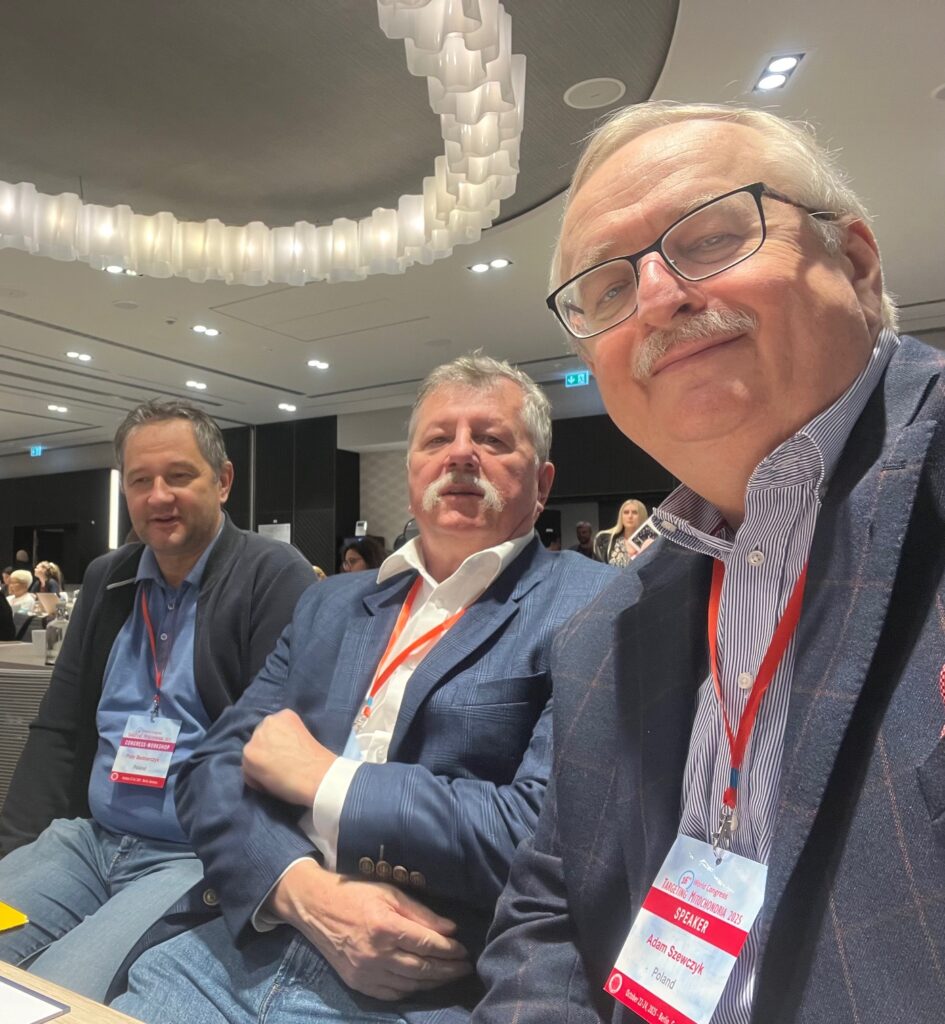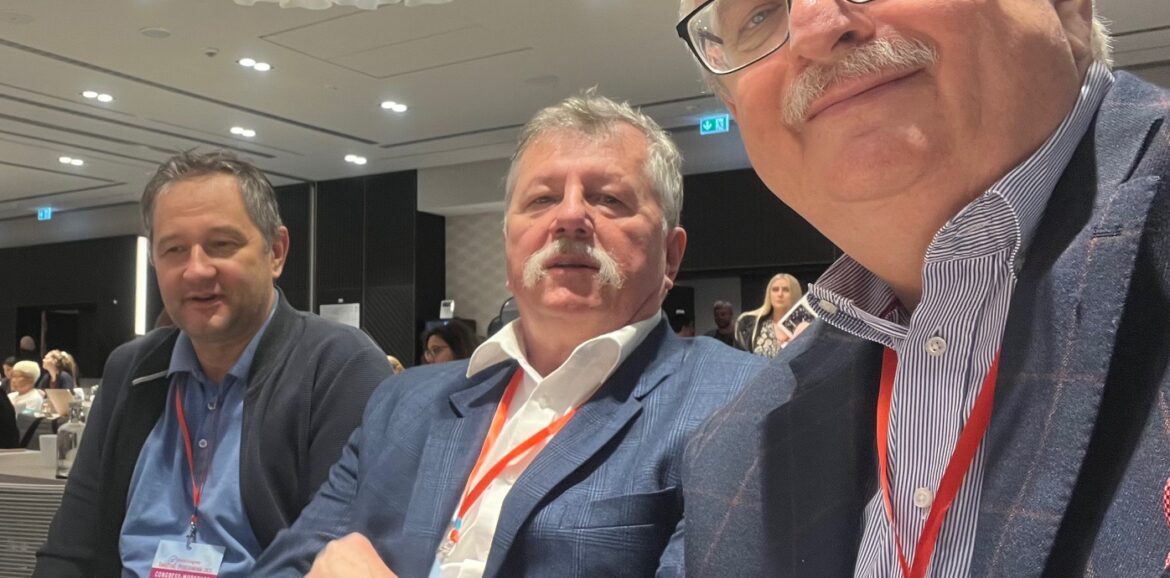Researchers from the Intracellular Ion Channels Laboratory of the Nencki Institute of Experimental Biology, presented their latest results at the 16th World Congress on Targeting Mitochondria, held on October 22–24, 2025, in Berlin, and organized by the World Mitochondria Society.
Professor Adam Szewczyk delivered Keynote Lecture „Targeting Mitochondrial Channels: Update and Strategies”. His talk summarized current knowledge on various mitochondrial ion channels—including potassium, calcium, and chloride channels—and their critical roles in controlling mitochondrial membrane potential, energy metabolism, and cell survival. The presentation also highlighted new strategies for therapeutic targeting of these channels to improve mitochondrial health under stress.
The lecture and accompanying research activities were carried out within the framework of the MAESTRO grant funded by the National Science Centre (NCN, Poland), aimed at developing innovative approaches to modulate mitochondrial function through selective regulation of ion channels.
In addition to the invited lecture two posters were presented:
- Prof. Piotr Bednarczyk – “Infrared light activates the mitochondrial large-conductance calcium-activated potassium channel in glioblastoma cells.”
- Dr Antoni Wrzosek – “A rapid and efficient method for isolating cardiac mitochondria from guinea pigs.”
These presentations showcased the laboratory’s multidisciplinary research, combining electrophysiology, biochemistry, and molecular biology to explore how mitochondrial ion channels shape energy metabolism, stress responses, and cell protection mechanisms.
“Understanding how mitochondrial ion channels integrate signaling and bioenergetic pathways is key to designing new mitochondria-targeted therapies,” said Professor Adam Szewczyk.

